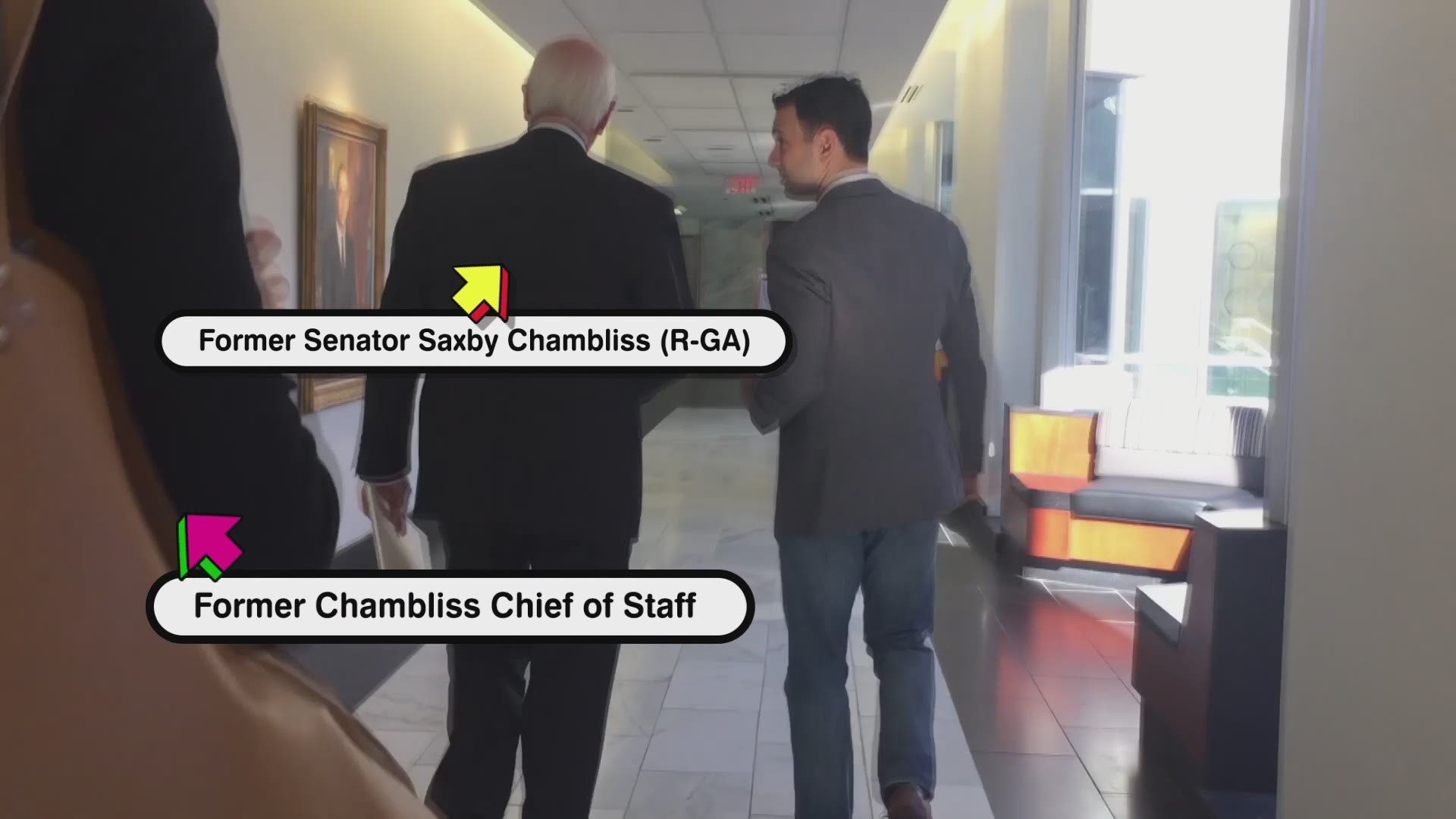WASHINGTON — Another complaint about a former Florida congressman misusing campaign money has hit the desk of the Federal Election Commission.
The Campaign Legal Center, a nonpartisan watchdog group in Washington, filed a federal complaint Monday against a political action committee created by Jacksonville Republican Ander Crenshaw, saying the group spent Crenshaw’s leftover donations on Apple products, expensive dinners and a $5,000 trip to Disney World.
“It appears to be another example of a former member of Congress thinking they can use leftover campaign funds as personal slush funds,” said Brendan Fischer, the center’s director of federal reform.
The personal use of campaign funds violates federal law. But a January 2018 Tampa Bay Times/10News WTSP investigation found more than 100 former politicians running zombie campaigns that kept spending long after their political career had ended, often financing their lifestyles, advancing new careers and paying family members.
The Campaign Legal Center has been closely tracking former lawmakers’ spending since the Times/WTSP investigation exposed the widespread abuse. The center has previously filed FEC complaints against some of the campaigns identified in the investigation.
The new complaint comes as the issue returns to the spotlight. Last week, the U.S. House of Representatives passed a bill, H.R. 1, that included an amendment filed in response to the Zombie Campaigns investigation.
The legislation would restrict former candidates’ spending after they stop running for office. But Senate President Mitch McConnell has indicated the bill, which also includes other controversial ethics and voting reforms, would not be heard in his chamber.
Crenshaw’s spending followed a different pattern than the cases highlighted by the Times/WTSP, which focused only on candidates who spent money from their existing campaign accounts at least two years after leaving office.
Crenshaw represented Jacksonville in Congress from 2001 to 2017. A month later, he converted his candidate campaign fund, with $59,867 remaining, into a political action committee, which has more freedom on how it spends contributions.
The committee, “Ander PAC,” was organized to benefit numerous candidates according to a 2017 filing. However, it collected just a single $450 donation before it was shut down two years later. During that time, the committee spent tens of thousands of dollars on phones, meals and travel around the country.
Neither Crenshaw, nor Ander PAC’s treasurer, Benjamin Ottenhoff, returned requests for comment. Ottenhoff is the former chief financial officer of the Republican National Committee and a political consultant who works with dozens of D.C.’s biggest PACs, as well as Rick Scott’s 2018 Senate campaign.
The Campaign Legal Center says converting a campaign account into a political action committee doesn’t mean a candidate can personally profit off the funds.
“I don’t know if he thought he could get around the personal-use prohibition, but that’s not how the rules work,” Fischer said of Crenshaw, citing several previous rulings by the Federal Election Committee.
“Ander PAC was not raising funds or giving money to other candidates. It does not seem like there was any legitimate purpose of this PAC, other than personal use.”
The center filed a similar second complaint Monday against a political action committee created by former U.S. Rep. John Linder, R-Ga.
That complaint alleges the committee set up by Linder, who held office from 1993 to 2011, spent tens of thousands of dollars on travel, Apple products and paying his children after leaving office.
In 2014, Linder converted his remaining $430,623 in individual campaign contributions into a multicandidate political committee. The center said the committee continued to pay Linder’s children $72,000 for fundraising consulting, even though it didn’t raise any funds and gave very little to other candidates.
“I don’t know if these former officeholders thought they could get around the personal-use ban by laundering their personal committee funds to a multicandidate committee,” Fischer said. “Their theory is flawed.”
Matthew John Linder, son of the former Georgia congressman and treasurer of his political committee, provided no comment when contacted by phone.
Complaints with the FEC are kept confidential until they are resolved.
The Times/WTSP investigation included disgraced former Congress members, like Florida’s Mark Foley, who was using his old campaign war chest to subsidize his Palm Beach social calendar a decade after he resigned from office. It even included some deceased members of Congress, such as late U.S. Rep. Mark Takai, D-Hawaii, whose former consultant Dylan Beesley paid himself tens of thousands of dollars from the campaign for political consulting after the congressman died. Beesley declined an interview request last month from a reporter at his home in Hawaii.
Following the Times/WTSP investigation, the FEC came to a rare bipartisan agreement to start scrutinizing dormant candidates’ filings for the first time. The agency said it would begin this year.



